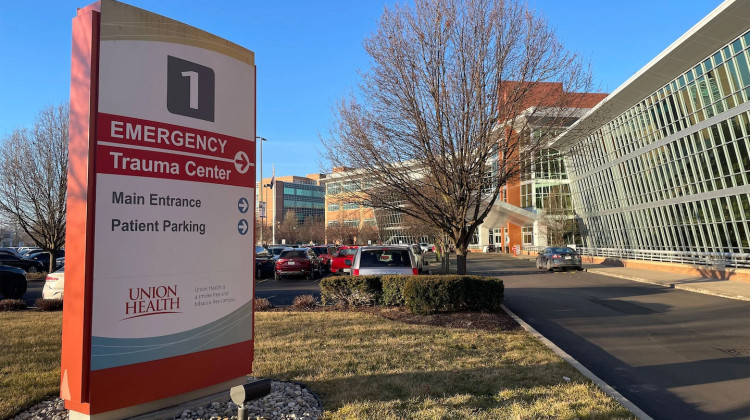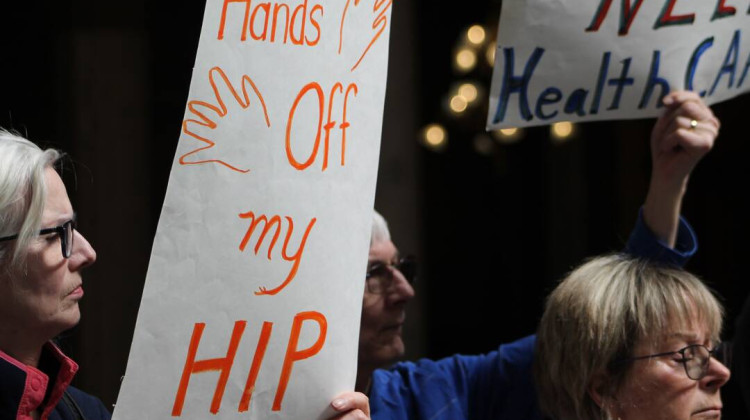In 2011, Maureen Sweeney was working as a registered nurse in labor and delivery at a Cleveland-area hospital. She helped hundreds of women, many minors in their early teens, deliver their children.
One patient from those nursing school days stood out in particular, a 15-year-old.
The teen was scared. She didn't talk much and didn't trust any of the doctors. She told Sweeney she was a runaway with no family.
"She was by herself and she was living on the streets or between friends' houses," Sweeney said.
In that moment, Sweeney became the young woman's only support system to help her through the delivery of her baby.
"So as it progressed and it got more and more painful, she did request an epidural," Sweeney said.
An epidural is a common type of regional anesthesia that eases the pain of labor. As she had done many times before, Sweeney followed hospital protocol and called the anesthesia department. But to her shock, they told her they could not help her young patient, without a parent there to give consent.
Sweeney called Cuyahoga County Children and Family Services. Often, an agent from children's services can sign for medical consent in these cases. But it was 3 a.m. The young woman was in active labor and an agent couldn't make it to the hospital until 9 a.m.
Sweeney recalled how hard it was to tell her patient the news.
"I had to go in, sit down with her and talk about the fact that she wasn't going to be able to get an epidural, and she was going to have to do this naturally," Sweeney said.
That's when the young woman broke down, Sweeney said, and folded in on herself in tears.
In 13 states, including Ohio, Indiana and Wisconsin, people under 18 who are in labor cannot consent to their own health care. They can receive emergency services, but nothing considered to be elective. For the many minors in those places who become pregnant, it's a painful gap in coverage.
In Ohio, the situation is also complicated by the fact that there is no legal process for emancipation: A minor's parents must be deceased or the minor must be married or enlisted in the armed forces to be granted independent legal status.
Throughout the U.S., minors are generally required to have permission from their parents or legal guardian before they can receive most medical treatment. However, each state has established a number of exceptions.
According to the Guttmacher Institute, 37 states have laws on the books allowing minors to consent to their own care, with some limitations in certain states. More than two dozen states allow minors 12 and older to get prescription methods of contraception without a parent's or guardian's consent. But 13 states have no explicit policy allowing a minor to consent to prenatal and pregnancy-related care.
In Ohio, the gap in the law also bars a young mother from choosing a C-section. And she can't consent to some prenatal care — for example, a procedure to test for chromosomal abnormalities in the fetus.
But that may be changing. Ohio is currently considering a law allowing minors to consent to care during pregnancy. Colorado and North Dakota enacted similar laws several years ago.
It seems holdout states are slowly changing their laws, revising thm once someone advocates for the change, said Abigail English, the director of the Center for Adolescent Health & the Law.
“It certainly could be that the issue was not brought to the attention of lawmakers until recently,” she said.
Delivery room doctors and nurses are often the ones raising the issue. They say without a minor consent law, pregnant teens are denied basic rights during childbirth.
“It’s already this at-risk population that’s in a high-risk situation and now we’re putting another barrier to them to accessing care,” said Sweeney.
Dr. Michael Cackovic, an obstetrician at The Ohio State University Wexner Medical Center, said every couple of months he sees a teenage mom who, under Ohio law, is unable to receive elective treatment, such as an epidural. He said it's frustrating not to be able to treat patients in pain.
"First of all, from a labor and delivery standpoint, you don't like to see anybody uncomfortable," Cackovic said.
Both Cackovic and Sweeney report they've had cases in which mothers intentionally denied their teenage daughters an epidural: a sort of punishment for getting pregnant.
All Cackovic could do is try to talk them out of it, taking the mom aside and saying:
"’You know, this isn't some life lesson here. This is basically pain — and there's no reason for somebody to go through that.' "
There’s no way to know for sure how many teens across the country are denied these elective procedures, but it’s clear they are not in the position to advocate for themselves.
“If [teens are] told ‘you don't have the right to ask for this,’ what's going to make them bring this up to an ACLU lawyer?” asks Sweeney.
Two Ohio lawmakers, Reps. Nickie Antonio and Kristin Boggs, are currently working on a bill, HB 302, that's progressing through the Ohio House and would allow pregnant minors to consent to health care from the prenatal stage through delivery.
This story was produced by a collaoration between Side Effects Public Media and WOSU News in Columbus, Ohio.
 DONATE
DONATE







 View More Articles
View More Articles


 Support WFYI. We can't do it without you.
Support WFYI. We can't do it without you.